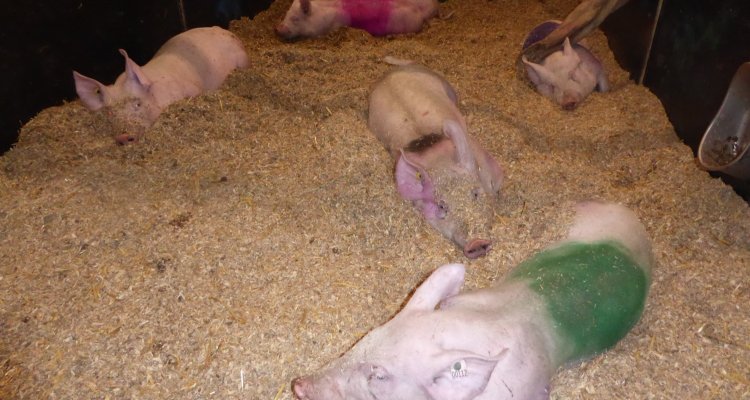Pigs had a lower accumulation of the stress hormone cortisol in their hairs.
June 17, 2022

Pigs that are reared in an alternative housing system with environmental enrichment, delayed weaning and with group housing during lactation, seem to be more resilient than pigs kept under conventional conditions, according to research from Wageningen University and Research. In the alternative housing system, the researchers say the pigs can show more natural behavior which improves their welfare.
During the research the pigs were exposed to a number of stressors that may also occur in conventional pig husbandry. Pigs from the alternative system were physiologically less affected and recovered more quickly from the challenges, and they seemed to experience less chronic stress.
"The pigs had a lower accumulation of the stress hormone cortisol in their hairs," says researcher Séverine Parois. "All these findings suggest that the animals have an improved welfare."
In the alternative housing system, the researchers mimicked some of the natural conditions of pigs that are important for their behavioral development. The piglets were weaned after nine weeks instead of four weeks, and mixed with other litters during lactation. There were, also after this period, more toys for them available to play with. Besides toys, the piglets could also use bedding material to root in and they had more space available.
The researchers say the fast recovery from inevitable challenges in resilient pigs will prevent problems and further reduce the use of antibiotics and other medicines in pig husbandry. Enhancing welfare by provision of social and environmental enrichment to better meet the behavioral needs of pigs seems to be a promising approach to improve their resilience.
"A faster recovery of pigs from sickness and other challenges is beneficial for pig welfare, but also advantageous for pig farmers," says Associate Professor Liesbeth Bolhuis. "Resilient pigs might even be more healthy. This helps us understand the animal in its environment. That makes it worthwhile to think about how to adapt the existing housing to stimulate the natural behavioral development of the pigs."
This research is a joint collaboration of WUR with Topigs Norsvin and Utrecht University and subsidized by the Netherlands Organization for Scientific Research.
Source: Wageningen University and Research, which is solely responsible for the information provided, and wholly owns the information. Informa Business Media and all its subsidiaries are not responsible for any of the content contained in this information asset
You May Also Like


.png?width=300&auto=webp&quality=80&disable=upscale)
